Uber, Lyft and others must have rules or workers will lose out | Elizabeth Warren
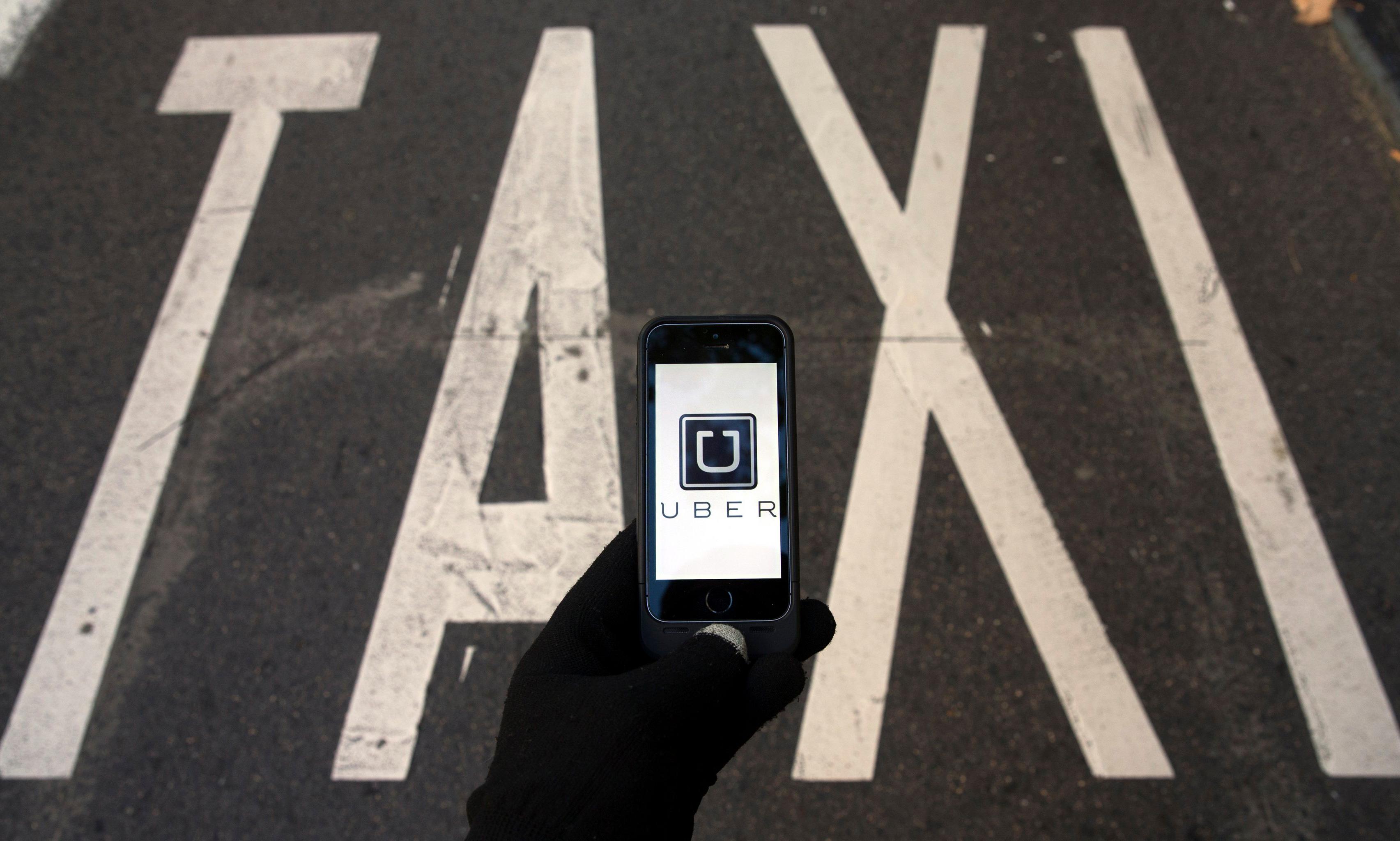
While technology has undoubtedly improved our lives, history shows we need rules and regulations to ensure workers can share in the gig economys wealth
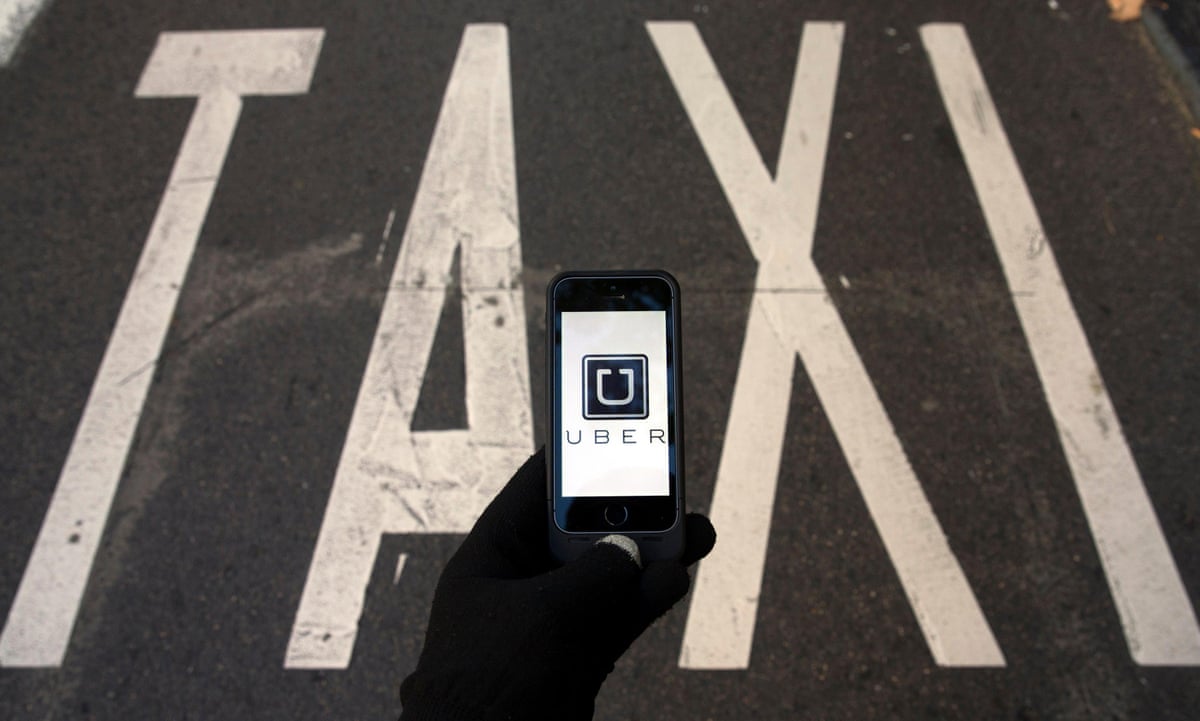
Across the country, new companies are using the internet to transform the way Americans work, shop, socialize, vacation, look for love, talk to the doctor, get around, and track down a 10ft feather boa which was my latest Amazon search.
These innovations have improved our lives in countless ways, reducing inefficiencies and leveraging network effects to help grow our economy. This is real growth.
The most famous example is the rise of ride-sharing platforms in our cities. The taxicab industry was riddled with monopolies, rents and inefficiencies. Cities limited the number of taxi licenses and charged drivers steep fees for taxi medallions. They required drivers to pay additional fees to pick up passengers at airports. They micromanaged the paint jobs for individual cars and even outlawed price competition.
Uber and Lyft, two ride-sharing platforms that came on to the scene about five years ago, radically altered this model, enabling anyone with a smartphone and a car to deliver rides. They also enabled customers to find a ride any time of day, with the touch of a button. The result was more rides, cheaper rides and shorter wait times. The ride-sharing story illustrates the promise of these new businesses and the dangers.
Uber and Lyft fought against local taxicab rules that kept prices high and limited access to services. But as the dispute in Austin, Texas, has demonstrated, the companies fought just as vigorously against local rules designed to create a level playing field between themselves and their taxi competitors, and they have also resisted rules designed to promote rider safety and driver accountability. While their businesses provide workers with great flexibility, companies like Lyft and Uber have often resisted the efforts of those same workers to access a greater share of the wealth generated from their work. Their business model is, in part, dependent on extremely low wages for drivers.
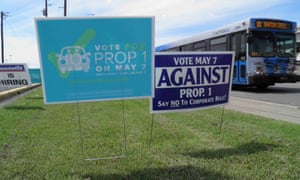
Its exciting and very hip to talk about Uber and Lyft and TaskRabbit, but the promise and risks of these companies isnt new. For centuries, technological advances have helped create new wealth and have increased GDP. But it is policy rules and regulations that will determine whether workers have a meaningful opportunity to share in that new wealth.
Hard-won rights
A century ago, the industrial revolution radically altered the American economy. Millions moved from farms to factories. These sweeping changes in our economy generated enormous wealth. They also wreaked havoc on workers and their families. Workplaces were monstrously unsafe. Wages were paltry and hours were grueling. Americas response wasnt to abandon the technological innovations and improvements of the industrial revolution. Instead, we came together, and through our government we changed public policies to adapt to a changing economy to keep the good and get rid of much of the bad.
The list of new laws and regulations was long: a minimum wage, workplace safety, workers compensation, child labor laws, the 40-hour work week, social security, the right to unionize. But each of these changes made a profound difference. They put guardrails around the ability of giant corporations to exploit workers to generate additional profits at any cost. They helped make sure that part of the increased wealth generated by innovation would be used to build a strong middle class.
The changes werent all focused on workers. Antitrust laws and newly created public utilities addressed the new technological revolutions tendency toward concentration and monopoly and kept our markets competitive. Rules to prevent cheating and fraud were added to make sure bad actors in the marketplace couldnt get a leg up on folks who played by the rules.
These changes didnt happen overnight. There were big fights, over decades, to establish that balance. But once in place, these policies underwrote the widely shared growth and prosperity of the 20th century.
From 1935 to 1980, the 90% everyone outside the top 10% got 70% of all income growth. As the economy grew and became more productive, so too did the average workers wages. Instead of all the wealth going to a handful of giant companies, factory owners, and investors the robber barons of the early 20th century the growth created by our manufacturing economy supported the growth of a strong, prosperous middle class. That distribution happened because of a newly emerging basic bargain for workers.
Massive technological change is a gift a byproduct of human ingenuity that creates extraordinary opportunities to improve the lives of billions. But history shows that to harness those opportunities to create and sustain a strong middle class, policy also matters.
Workers under attack
Over the past three decades, workers have been under merciless attack. Big business has tried to squeeze more profits out of them by ducking and dodging regulations and by taking advantage of loopholes in employment policy, by skirting enforcement efforts, and even by flagrantly violating the law. Giant corporations have deployed armies of lobbyists and lawyers to freeze, limit or dismantle as many worker protections as they could.
The result is that the guardrails that once served to build a robust middle class no longer offered the same kind of protection. More and more of todays jobs have sharply limited protections and benefits. Long before anyone ever wrote an article about the gig economy, corporations had discovered the higher profits they could wring out of an on-demand workforce made up of independent contractors.
Labor law makes a sharp distinction between employees and independent contractors, and many employers figured out how to exploit that distinction. They hired people who do the work once done by people characterized as employees, but then recharacterized them as independent contractors or as somebody elses employees.
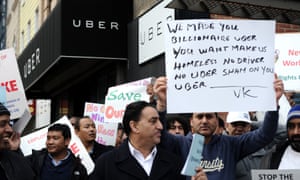
Photograph: ddp USA/Rex/Shutterstock
Employees, particularly low-wage employees, face challenges that are not unlike challenges facing gig workers and independent contractors. They too have lost both benefits and the stability of a guaranteed work schedule and a steady income. As employers have moved to just-in-time staffing, more hourly workers are trapped in part-time jobs or stripped-down full-time jobs. An increasing number of workers are in subcontracting or franchise arrangements where their employment conditions are controlled by firms they cant bargain with or hold accountable for meeting basic wage or safety obligations. They may not even know the name of their actual employer.
The gig economy didnt invent any of these problems. In fact, the gig economy has become a stopgap for some workers who cant make ends meet in a weak labor market. The much-touted virtues of flexibility, independence and creativity offered by gig work might be true for some workers under some conditions, but for many, the gig economy is simply the next step in a losing effort to build some economic security in a world where all the benefits are floating to the top 10%.
What we can do
Just as this country did a hundred years ago, its time to rethink the basic bargain between workers and companies. As greater wealth is generated by new technology, how can we ensure that the workers who support this economy can share in that wealth?
I believe we start with one simple principle: all workers no matter when they work, where they work, who they work for, whether they pick tomatoes or build rocket ships should have some basic protections and be able to build some economic security for themselves and their families. No worker should fall through the cracks.
We can start by strengthening our safety net so it catches anyone who has fallen on hard times, whether they have an employer or not. There are three much-needed changes right off the bat.
First, make sure every worker pays into social security as the law always intended. Right now, its a challenge for someone who doesnt have an employer to automatically deduct payroll taxes to pay into social security. This can affect both a workers ability to qualify for disability insurance after a major injury, and it can result in much lower retirement benefits.
Second, every worker should be covered by catastrophic insurance. Workers who have serious accidents or suffer from illnesses that knock them out of the labor market for an extended period need a backstop. This type of insurance could be relatively cheap if its pooled across the entire workforce through regular, small, automatically deducted contributions.
Third, all workers should have some paid leave. We can debate where to draw the lines, but lets start with two ideas. First, each worker should be able to accrue proportional credits toward a certain number of days a year for any purpose. Second, workers should have some paid family and medical leave to insure against longer absences such as a more serious illness or to care for a newborn.
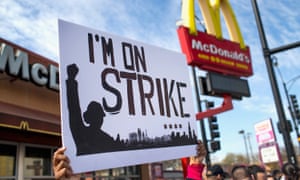
Another area of change is to make employee benefits both for healthcare and retirement fully portable: they belong to the worker, no matter what company or platform generates the income, and they should follow that worker wherever the worker goes.
And in the final big area, it is time to create some legal and regulatory certainty in the labor market. If it is done right, it will be possible to reduce red tape for large employers, small business owners, and entrepreneurs cutting their costs and making it easier for them to employ people. Less ambiguity will also help make sure that some employers dont exploit loopholes to gain competitive advantages.
How we do it
There are four ways to make progress in this area.
First, enforce the laws already on the books. Employers shouldnt be misclassifying workers to keep labor costs down and they shouldnt be hiding behind complex arrangements like franchising and subcontracting to skirt their responsibilities to their workers.
Second, streamline labor laws. Currently, there are endless different legal definitions of an employee, depending on the workers industry or occupation. The boundaries between employees, contract workers and gig workers are complex. Providing a wider safety net and more consistent access to retirement and health benefits will reduce the huge impact of different classifications.
Third, wherever possible, streamline laws at the federal level so that employers operating across state lines dont have to jump through a crazy number of hoops when they employ workers from more than one state. A small business owner with workers in several states shouldnt have to spend her valuable time struggling to master different state regulations.
Fourth, every worker should have the right to organize, period. Full-time, part-time, temp workers, gig workers, contract workers those who provide the labor should have the right to bargain as a group with whoever controls the terms of their work, and they should be protected from retaliation or discrimination for doing so.
My message is straightforward: workers deserve a level playing field and some basic protections, no matter who they work for, where they work, or how the law classifies them. They deserve a strong safety net, dependable benefits, and the chance to bargain over their working conditions thats the basic deal.
Most workers arent asking for the moon. They want to be able to take care of their families, buy a home, send their kids to college, and save a little money for retirement. They want some security, and they want to know their kids will have a chance to do better than they did. Thats the promise of America, but that promise wont come true unless we make some real changes.
- This is an edited extract of a speech given this week at the New America Foundation conference in Washington DC.
Read more: https://www.theguardian.com/technology/2016/may/20/elizabeth-warren-uber-lyft-gig-economy-workers